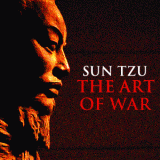In discussions on the role of blogs (with journalists, freelance writers, lawyers etc) I tend to argue that the biggest change is that there is all of a sudden a large group of people who are prepared to write for free. Many of these writers are really bad and not worth reading. But it is easy enough to find a group of blogs/writers, which suit your interests and tastes. Therefore a great deal of the sources of literature and analysis of affairs comes from passionate amateurs â?? as opposed to the ranks of paid experts.
In attempts to prove my point I often enjoy pointing out that I blog for free to an unknown audience. Sometimes that audience engages me in discussion, comments my writing or questions my intelligence. This feedback is always nice (even the latter).
Recently I was questioned (not online) about my statement that I blog for free since I have in the left column of this blog a list of books and if you were to click on them and then buy the books from Amazon chances are that I will get a kickback.
Have I therefore lost my amateur status?
The books are there because these are the books that I at present find most interesting they are randomly chosen from my collection at Librarything. The idea is to give the visitor and list of additional reading and provide readers with some random colour.
Since I said kickbacks you naturally ask: â??Tell us about the money!â?? To which I reply here is a copy of my earnings under 2005 (the duration of this experiment thus far).
The -7 refers to books which have been returned. So my connection with capitalism has brought me less than a penny a day. This amount is too small to be paid by Amazon â?? so I do write for free after allâ?¦
Or maybe it’s just because I don’t have a big enough blog?



